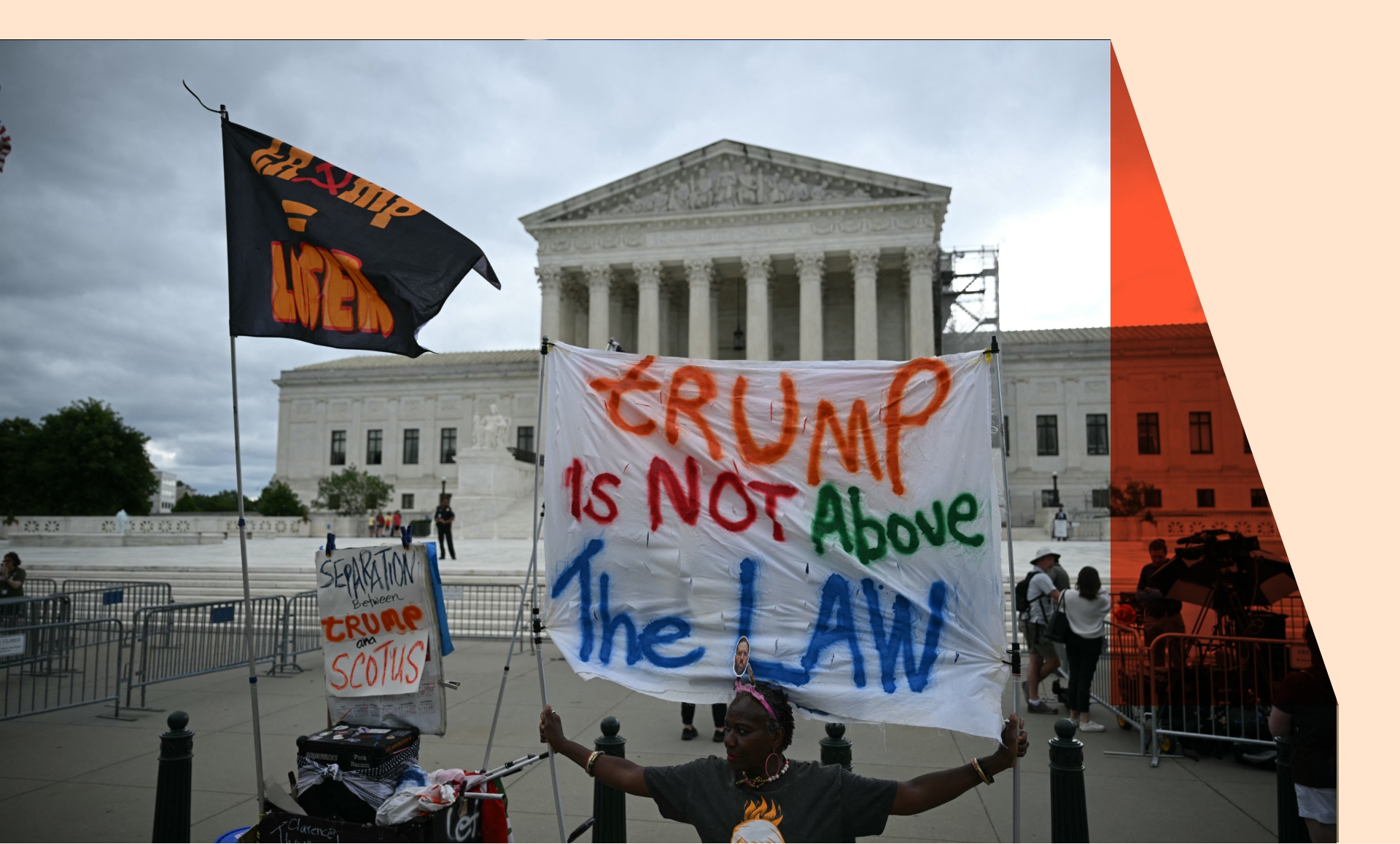theSkimm checked in with Caroline Polisi, legal analyst and lecturer in law at Columbia Law School, to break down the Supreme Court’s decision on presidential immunity. Here’s what she had to say...
What's something that stood out to you in the decision?
I was surprised that the court held not only that a president enjoys absolute immunity from criminal prosecution for actions within his constitutional authority, but it went a step further and said that a president is entitled to presumptive immunity for all official acts. This means that for much of the conduct alleged in former President Trump’s indictment, special counsel Jack Smith’s team will have to rebut this presumptive immunity by showing that the conduct was purely personal in nature. That is a very high bar. The decision today has severely hamstrung the special counsel’s prosecution.
What are some of the dangers of SCOTUS' decision?
The dangers are obviously future presidents who cynically use the ruling to cloak otherwise criminal conduct in the trappings of official presidential acts. For example: taking bribes in exchange for official appointments, or taking official action against political enemies. The results really could be disastrous.
What are your thoughts on the dissents?
The dissents were blistering and really show just how divided this court is politically and ideologically. Justice Sonia Sotomayor, who read her dissent from the bench, noted her belief that the long-term effects of insulating the president from criminal prosecution will be stark. She warned that future presidents will be able to “exploit the trappings of his office for personal gain” and “use his official power for evil ends.” She also noted that under the majority opinion, “the President is now a king above the law.”
Where do we go from here?
The court has explicitly left many fact-finding issues to Judge Tanya Chutkan, who is overseeing Trump’s January 6th prosecution in the District of Columbia. Those decisions can also be appealed back up to the Supreme Court for review. If there were any question at all as to whether this case could possibly get back on track and be tried before the election, we now know that it cannot. There simply won’t be enough time between now and November 5th. The best the American public can hope for now is an evidentiary hearing in which some of the special counsel’s evidence will be previewed in order for the court to decide which conduct described in the indictment is purely personal, and therefore chargeable criminal conduct outside the scope of the immunity granted. However, that is a very poor substitute for the accountability much of the American electorate wanted to take place prior to election day.
Featured Expert

Caroline Polisi - Legal Analyst and Lecturer in Law at Columbia Law School
PS: This interview has been edited for length and clarity.
Live Smarter
Sign up for the Daily Skimm email newsletter. Delivered to your inbox every morning and prepares you for your day in minutes.
